Introducing the 2023 3M National Teaching Fellowship Award Winners
Meet the university and college educators who, through leadership and dedication to teaching, are making a difference.
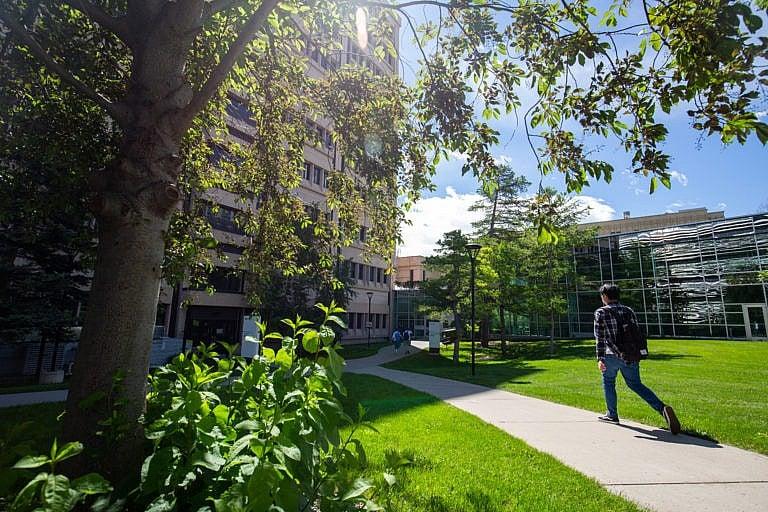
(Photo courtesy of the University of Calgary)
Share
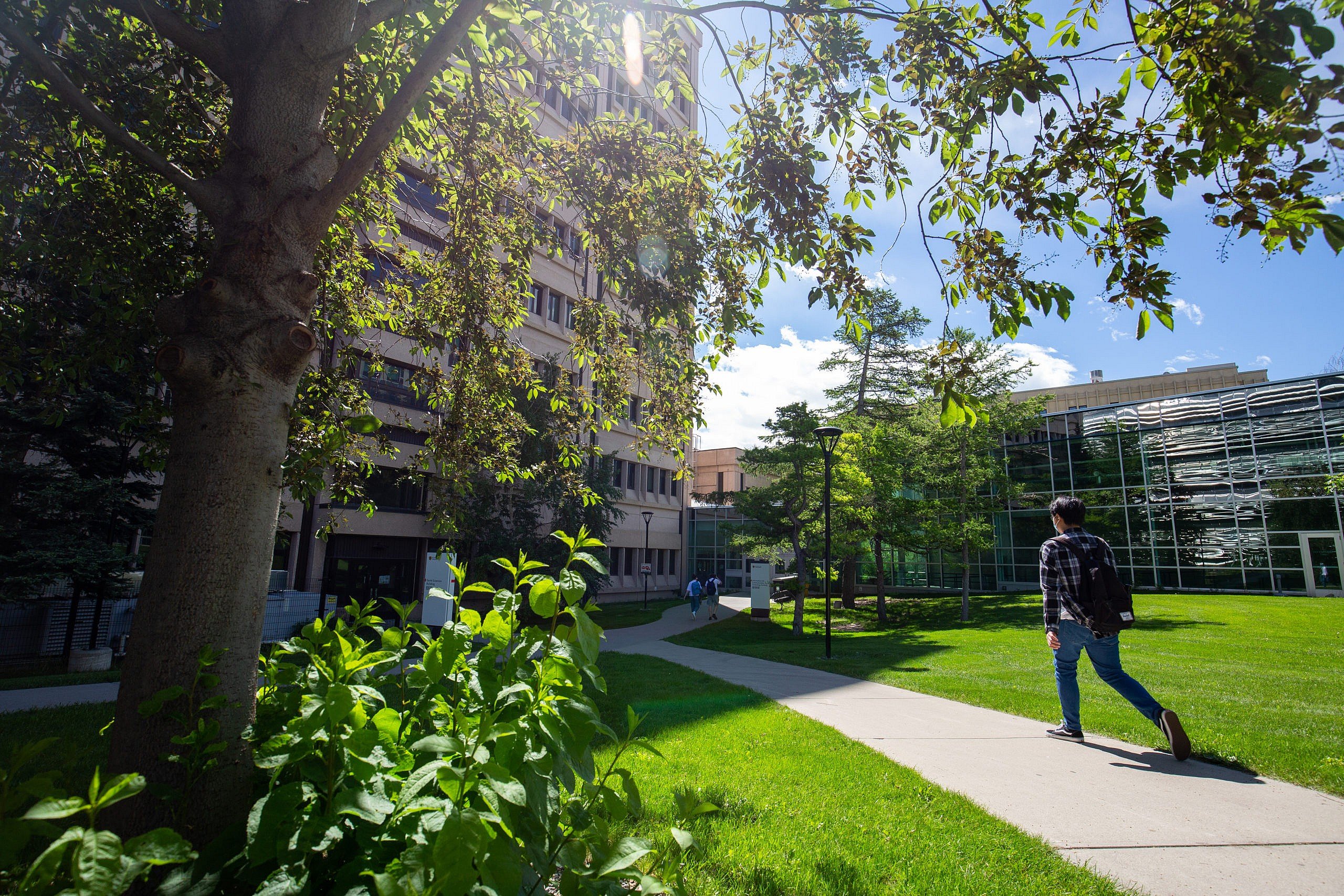
The 3M National Teaching Fellowship was created in 1986 by the Society for Teaching and Learning in Higher Education (STLHE) to recognize exceptional teachers in post-secondary education. Every year, the fellowship celebrates 10 university and college educators who show leadership in enhancing post-secondary education and a sustained dedication to undergraduate education. Winners become lifetime members of the society, a national organization working to advance teaching and learning in higher education.
As the program’s media sponsor since 2006, Maclean’s is pleased to announce the 2023 Fellows. Below, STLHE’s selection committee explains why these 10 professors are being recognized this year.
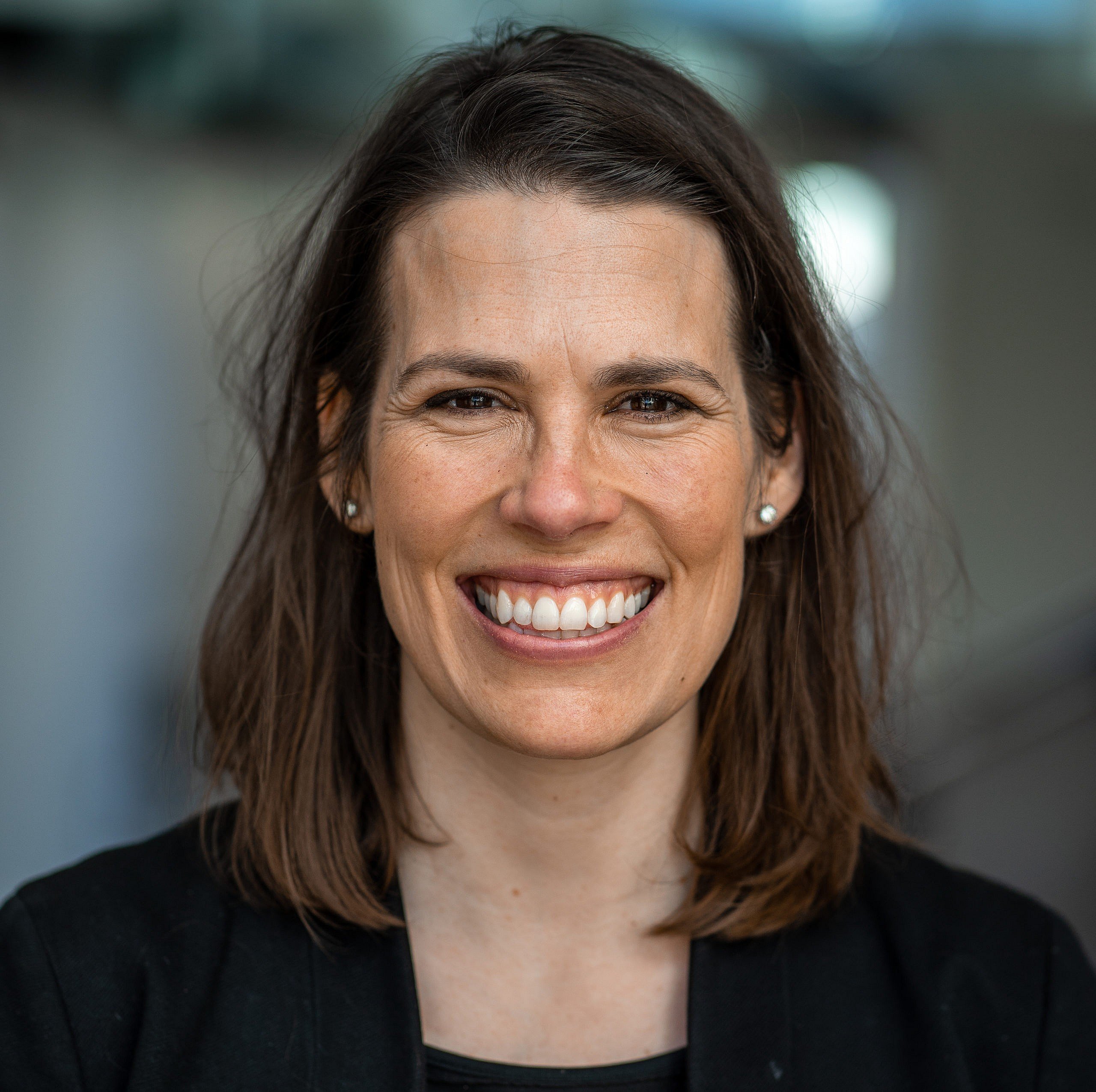
Susie Andrews, Mount Allison University
Associate Professor of East Asian Religions, Mount Allison University
Dr. Susan Andrews is an Associate Professor of East Asian Religions at Mount Allison University. With boundless energy she works with her students to co-imagine, co-design, and co-create student-centred forward facing liberal education. As one of her colleagues states, “she does this while poised between humorous joy and striking humility, between effervescent enthusiasm and a palpable sense of profound calling.” Whether she is teaching “Death and the Afterlife in Asian Religions” or the hands-on culinary adventure “Food Practices in East Asian Religions,” she and her students embark on learning journeys together to find wonder––and in doing so find themselves. Through the international Frogbear program, Dr. Andrews and her students are members of a global team endeavoring to deepen public and scholarly understandings of Buddhism and East Asian religions. From studying ancient inscriptions in Shanxi province to producing drone footage of northern Taiwan’s sacred landscape, this program re-thinks traditional universities by expanding learning beyond the limits of the classroom.
Collaborating with early childhood educators, literacies practitioners, librarians, and other experts, Dr. Andrews and her students are piloting intergenerational literacies programming and invitational curricula that promote creativity, curiosity, and radical compassion––generating wonder around learning and much needed resources for communities that open new worlds of possibility and hope. Dr. Andrews’ community-based approach is embedded in both local micro-cultures and has propelled into global spaces, transforming individuals and communities.
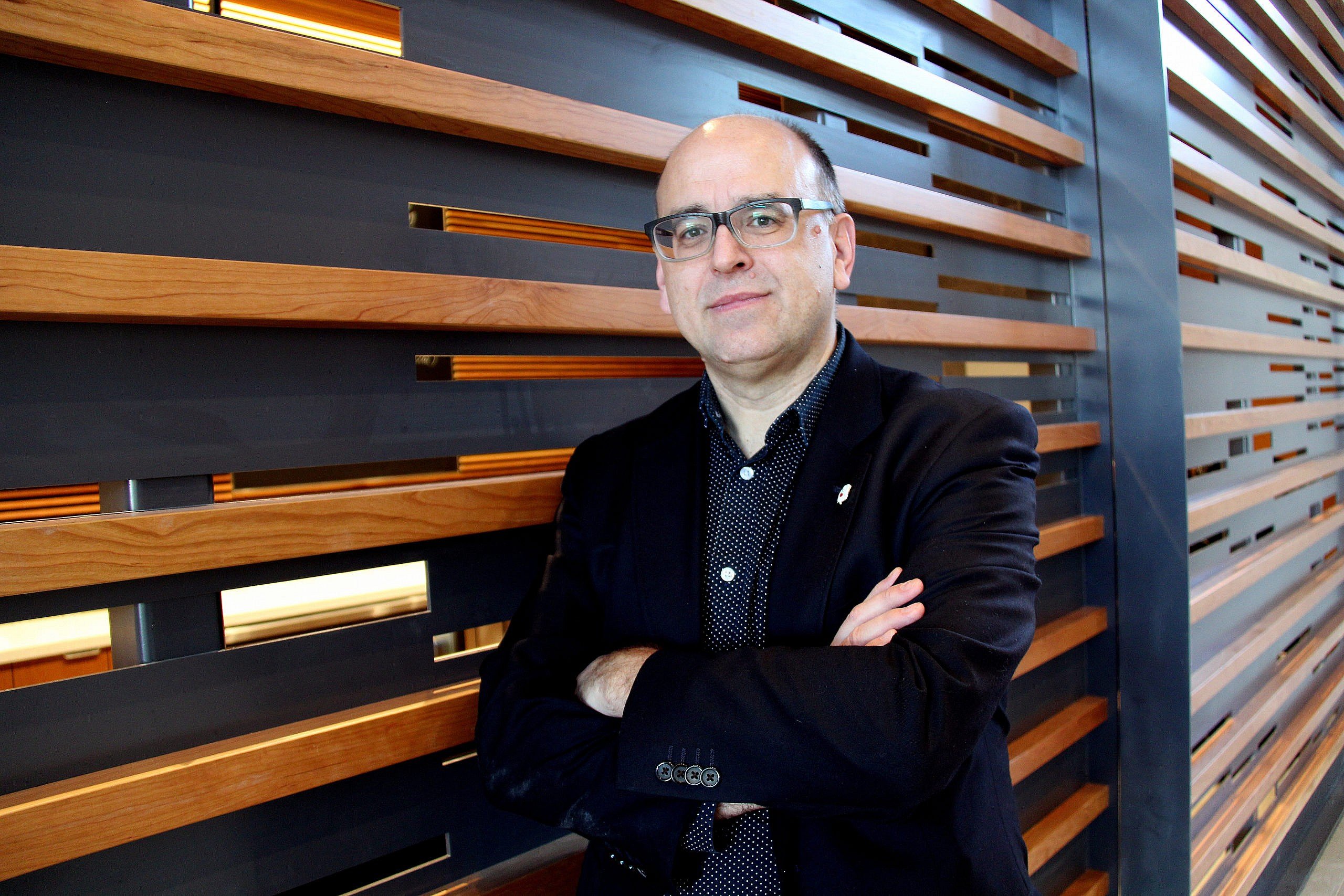
Ken Derry, University of Toronto Mississauga
Associate Professor in the Department of Historical Studies, University of Toronto Mississauga
Ken Derry is an Associate Professor, Teaching Stream, in the Department of Historical Studies at the University of Toronto Mississauga. With a “courageously caring” pedagogical approach, rooted in evidence-based practices and expressed in a joyful embrace of learning, he exemplifies excellent teaching in the study of religion. His former teaching assistants write of their appreciation for his unwavering commitment to the principles of equity, diversity, inclusion, and accessibility. They note that his “approach to teaching begins with an explicit focus on making the learning environment as inclusive as possible for students.” This approach is guided by research that connects kindness with learning and affirms the importance of trauma-informed teaching.
Professor Derry has developed extensive pedagogical innovations, especially with respect to problem-based learning, learning through failure, and deliberate construction of inclusive learning spaces. Recognizing that learning moves in multiple ways, Dr. Derry strives to learn constantly from his students, and has built structural supports to allow such learning to happen both inside and beyond the classroom. Student Wali Shah attests to the power of Derry’s selfless teaching: “Good educators teach, but great educators both teach and learn from their students. In my experience, that has always been the cornerstone of Professor Derry’s pedagogy.”
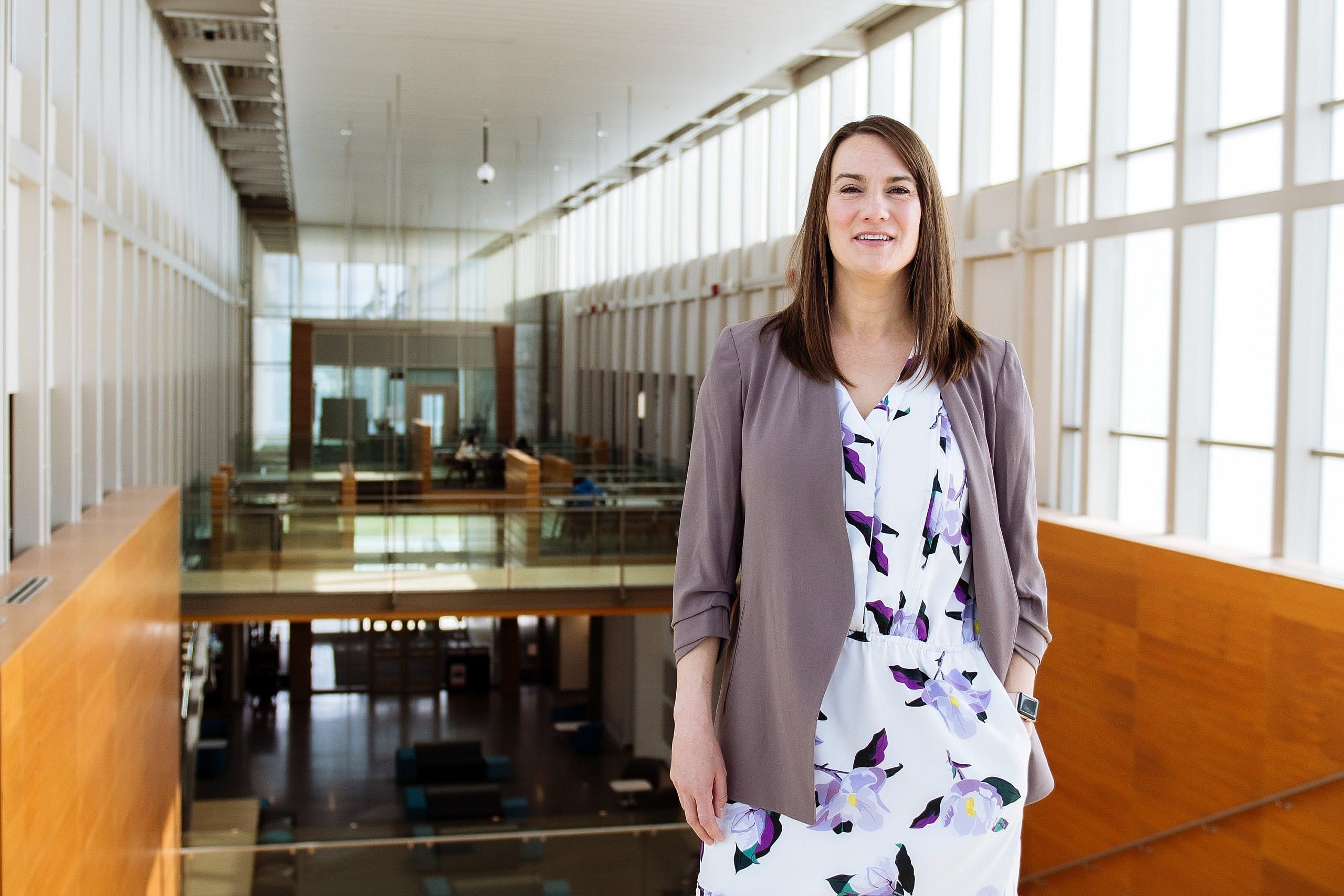
Kyla Flanagan, University of Calgary
Associate Professor in the Department of Biological Science and Academic Lead in the Office of Experiential Learning, University of Calgary
Dr. Kyla Flanagan is an Associate Professor (Teaching) in the Department of Biological Sciences as well as Academic Lead in the Office of Experiential Learning at the University of Calgary’s Taylor Institute for Teaching and Learning. As an educational leader, she weaves pedagogical innovation, research skills, and collaborative learning within and beyond her classrooms. She is an expert at incorporating case studies into biology courses with some of her cases being accessed tens of thousands of times. She has forged a path for thousands of students to see themselves as researchers early on in their educational learning. In her teaching philosophy she emphasizes her values of teaching as being ‘fair, relevant and engaging’ and uses strategies that include peer mentoring, microcredentials and team-based learning. Dr. Flanagan has built exceptional opportunities for undergraduate mentorship and uses this type of mentoring to collaborate with students and colleagues. She cares deeply about providing undergraduate students with equitable opportunities within experiential learning and within the Indigenous Pathways Course. In addition to her impact with students and in teaching, Dr. Flanagan’s educational leadership is also seen at the institutional level in her work on fostering faculty resilience. Responding to the issue of academic burnouts and faculty mental health, she collaborated with colleagues to launch a program called the Resilient Academic.
Recognized by her peers and students with numerous awards, she is identified as someone who “empowers students by treating them as fellow scientists, giving them opportunities and motivating them to believe in themselves.”
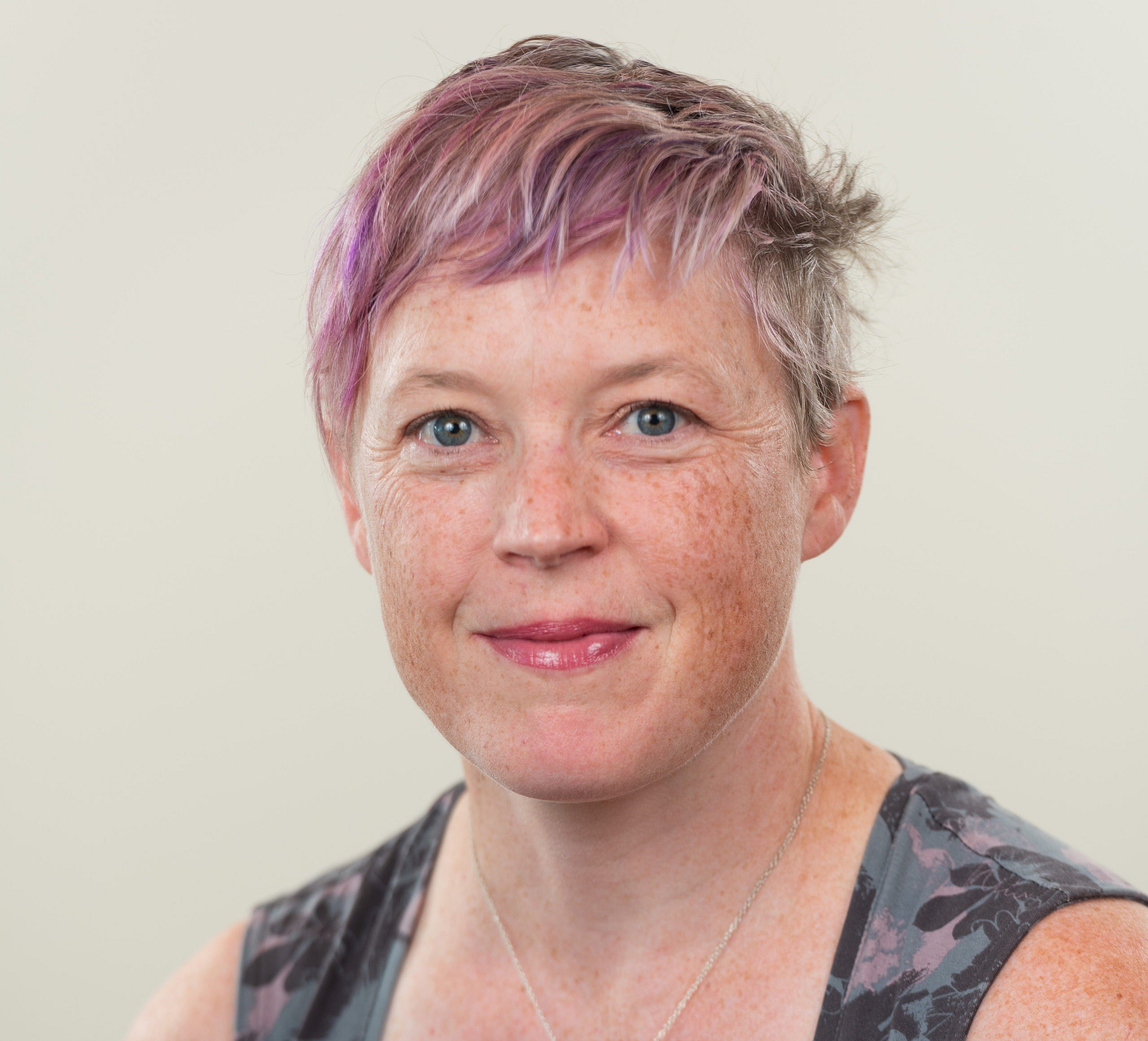
Sarah Hewitt, Mount Royal University
Associate Professor in the Department of Biology, Mount Royal University
Dr. Sarah Hewitt is an Associate Professor in the Department of Biology at Mount Royal University in Calgary. She is known for innovative course designs that broadly advance teaching and learning. At the core of her Educational Leadership Philosophy are the values of courage, collaboration, and communication. Through her novel science communication work as an ‘adventure scientist’, she dedicates herself to sharing and disseminating knowledge for the benefit of the academic and broader community. She creates opportunities for students to communicate science with a creative flair. Through mentoring and partnership with colleagues and students, she demonstrates her commitment to helping others amplify their voice and their practice. In her classroom she creates unique experiences that encourage students to take risks in a supportive, yet challenging environment, and researches her pedagogy through extensive involvement in the Scholarship of Teaching and Learning.
A colleague writes that Dr. Hewitt’s approach to science communication is, “a new way of doing science outreach.” She is sharing this knowledge through workshops on teaching practices and developing science communication skills within her department, institution, nationally and internationally. This contributes to the transformation of teaching science including breaking down disciplinary boundaries.
Dr. Hewitt communicates to students the value of their inner curiosity allowing them to see the connections between ideas, and helps them let go of the need to memorize and have a definitive answer. In Dr. Hewitt’s own words, “Be bold. Take chances. Try something new. That’s how learning takes place.”
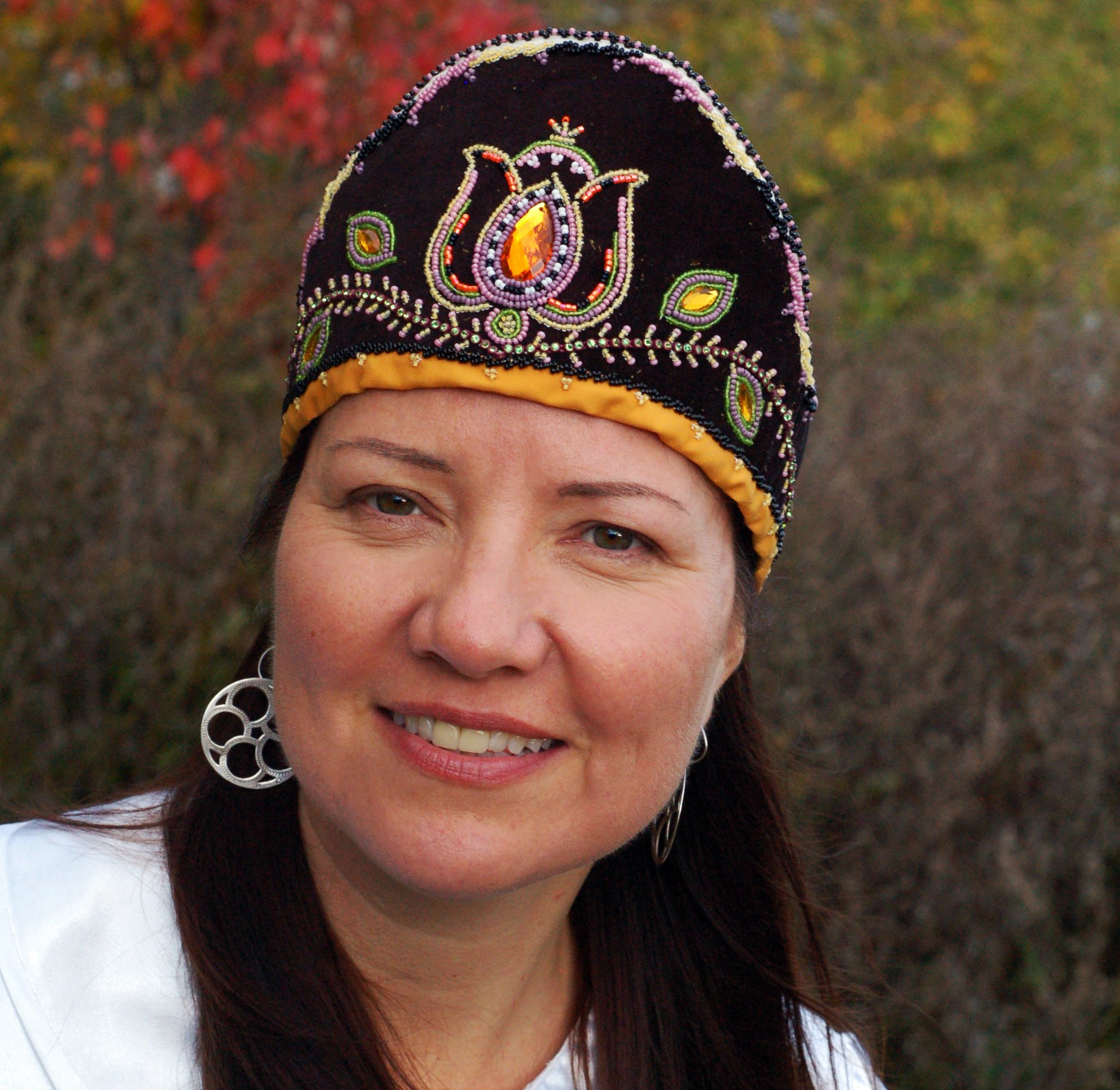
Kahente Horn-Miller, Carleton University
Associate professor and inaugural Associate Vice-President, Indigenous Teaching, Learning, and Research, Carleton University
Dr. Kahente Horn-Miller (Kahente means, “she walks ahead”) (Kanien:keha’ka/Mohawk) creates safe spaces for difficult conversations between Indigenous and non-Indigenous peoples with the goal of creating a community of change at the institution. As an associate professor and inaugural Associate Vice-President, Indigenous Teaching, Learning, and Research at Carleton University, Dr. Horn-Miller’s leadership, teaching, and research involve interpreting Haudenosaunee culture and practices, which highlight the importance of community, dialogue, and consensus-building. In doing so, she is guided by the philosophy of Kaienerekowa (“way of peace”), which ensures peace, equal voice, and respect for each other and the natural world.
Dr. Horn-Miller responded in a fulsome way to the Truth and Reconciliation Commission of Canada’s call for postsecondary institutions to increase the integration of Indigenous knowledge into classrooms. She conceived the Collaborative Indigenous Learning Bundles—a series of Indigenous knowledge modules available online for her colleagues to incorporate into their classes. Under Dr. Horn-Miller’s guidance, the Bundle project has since expanded throughout Carleton University and Western University.
Dr. Horn-Miller’s pedagogy is about learner-centered and inclusive teaching and her students describe her classes as spaces of personal growth. A student explains, “I learned so much… from Kahente’s profound and insightful teachings… This class fired my heart once again and reminded me of why I started this study.” Storytelling is an important part of Dr. Horn-Miller’s Indigenous pedagogy, as it is the concept of tsi ni tia wen’a, which means, “a telling of things in a way that you can see it” or “to make it alive in the minds of the people.” Dr. Horn-Miller’s work truly transcends academic boundaries, ultimately leading the renaissance of Indigenous knowledge within academia.
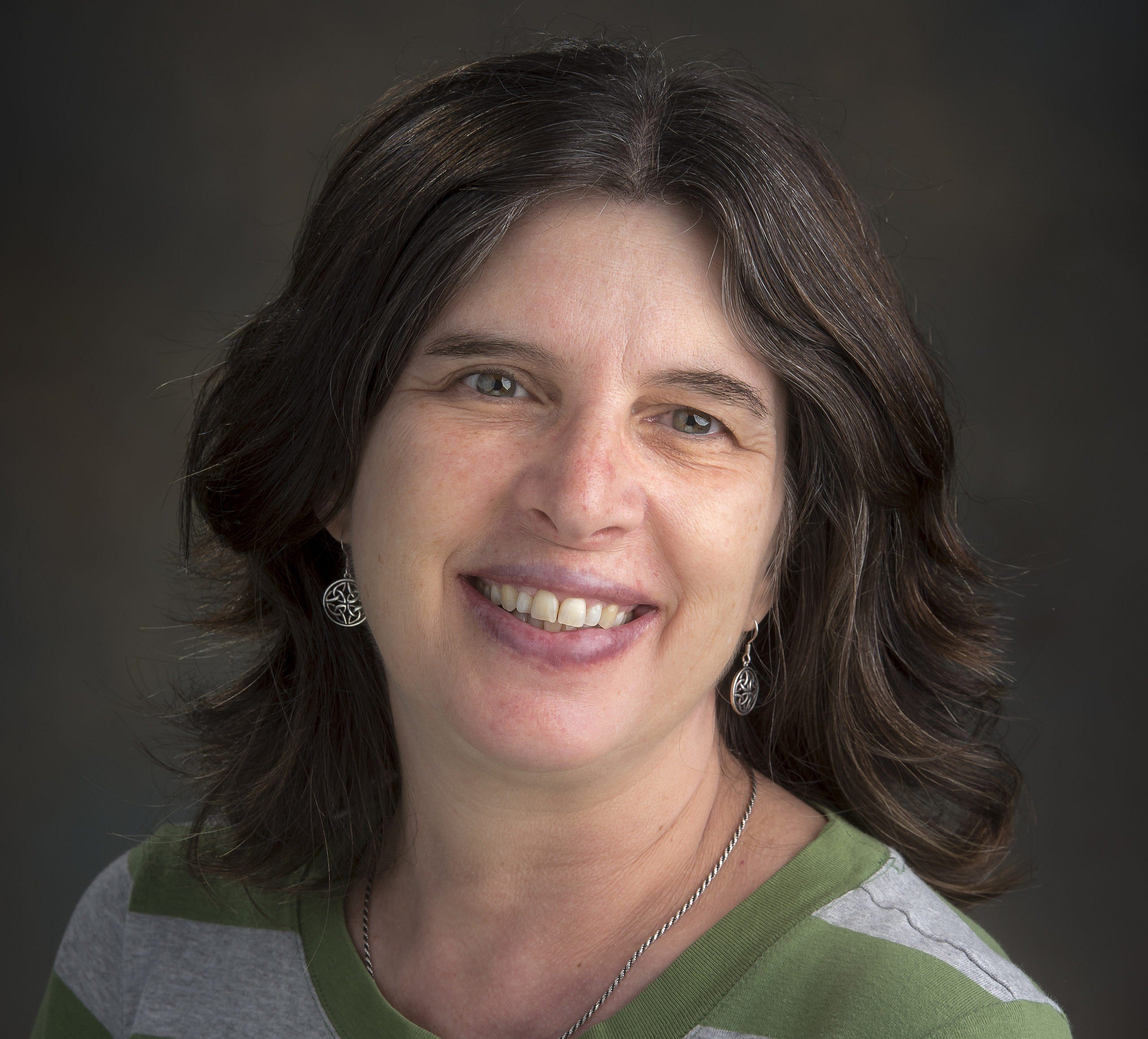
Sarah D. Johnson, Simon Fraser University
University Lecturer, Simon Fraser University
University Lecturer Sarah D. Johnson’s innovative teaching practices are transforming how physics is learned, at Simon Fraser University and beyond. She excels at making physics accessible, relevant, and engaging in her large first-year physics courses for biologists and other STEM majors. Her innovative teaching approaches demystify physics, promote inclusive learning, and inspire tomorrow’s leaders. Her enthusiasm for physics and her masterful patience is at the heart of her work. A former student explains that “Sarah is more than a teacher; she is a compassionate guide, helping her students to find their own reason to embrace physics.” She is the “master of outreach” who has created family activities like Science Spooktacular and programs such as Girls Exploring Physics to address gendered stereotypes in science. Sarah’s commitment to ensuring that science is accessible to everyone led her to implement The Science Around Us for aspiring elementary and middle school teachers. Her pilot peer tutoring program evolved to a Faculty of Science-wide program in which more than 150 students have participated as volunteer peer tutors.
When something needs to be done, Sarah does it. A colleague says it best: “Sarah acts simultaneously as a fearless leader, teammate, cheerleader, and pack mule, doing all the heavy lifting. We leave feeling energized, supported, reassured, and ready to push through challenges.”
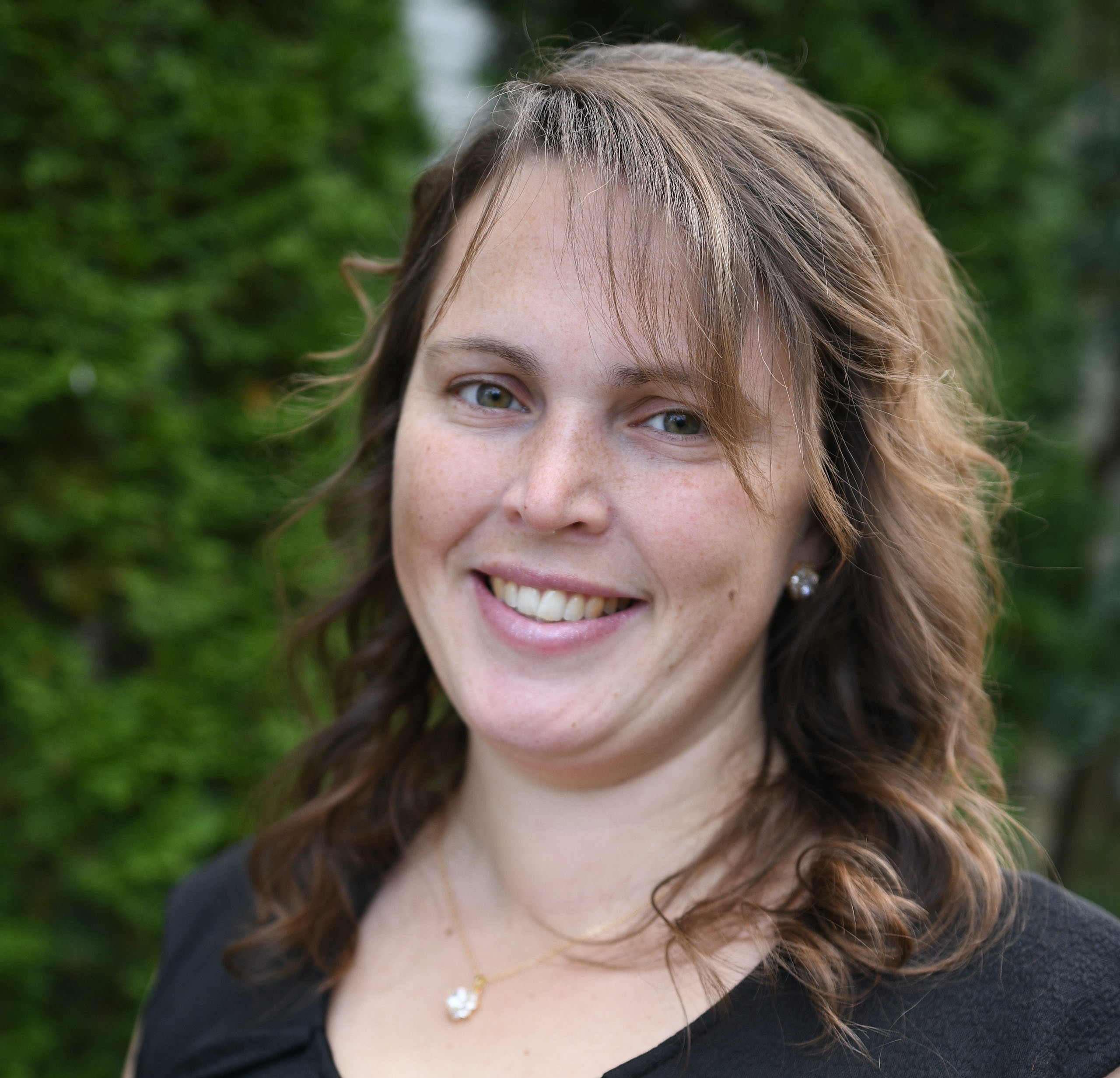
Laura Killam, Cambrian College and Nipissing University
Nurse educator, Cambrian College and Nipissing University
Laura Killam, fondly known as “Nurse Killam”, believes in flexibility, sharing decision making power with students through co-creation, and designing accessible learning experiences. As a nurse educator at Cambrian College and Nipissing University, Laura shares decision-making with students to improve inclusion in courses, build meaningful learner-educator relationships, promote critical thinking, and develop real world nursing skills. Her innovative pedagogy, and commitment is aimed at reducing oppression, promoting inclusivity, and making learning more memorable.
By integrating technology, open-access resources, and expanding her classroom to the world through YouTube, Laura removes barriers to student success and models empathy and excellence for her students. Helping others is what drove Laura to start her @NurseKillam YouTube channel in 2010. With over 6 million views, this channel has influenced the understanding of students across the globe. “At nursing education conferences, people see her name tag in the coffee line, and are shocked – you’re Nurse Killam!” explains a colleague; “she’s a celebrity, whose work is exponentially important.” She believes that students need simple explanations of course concepts to succeed and works hard to “empower students to learn in their own way.”
Former students, including those who have taken her online classes while working as nurses, remark how Laura’s implementation of student-centered instruction and assessment allowed them to flourish as students and practitioners. Students feel “supported” and like they have had a “full post-secondary experience” thanks to her pedagogy and humanized instruction.
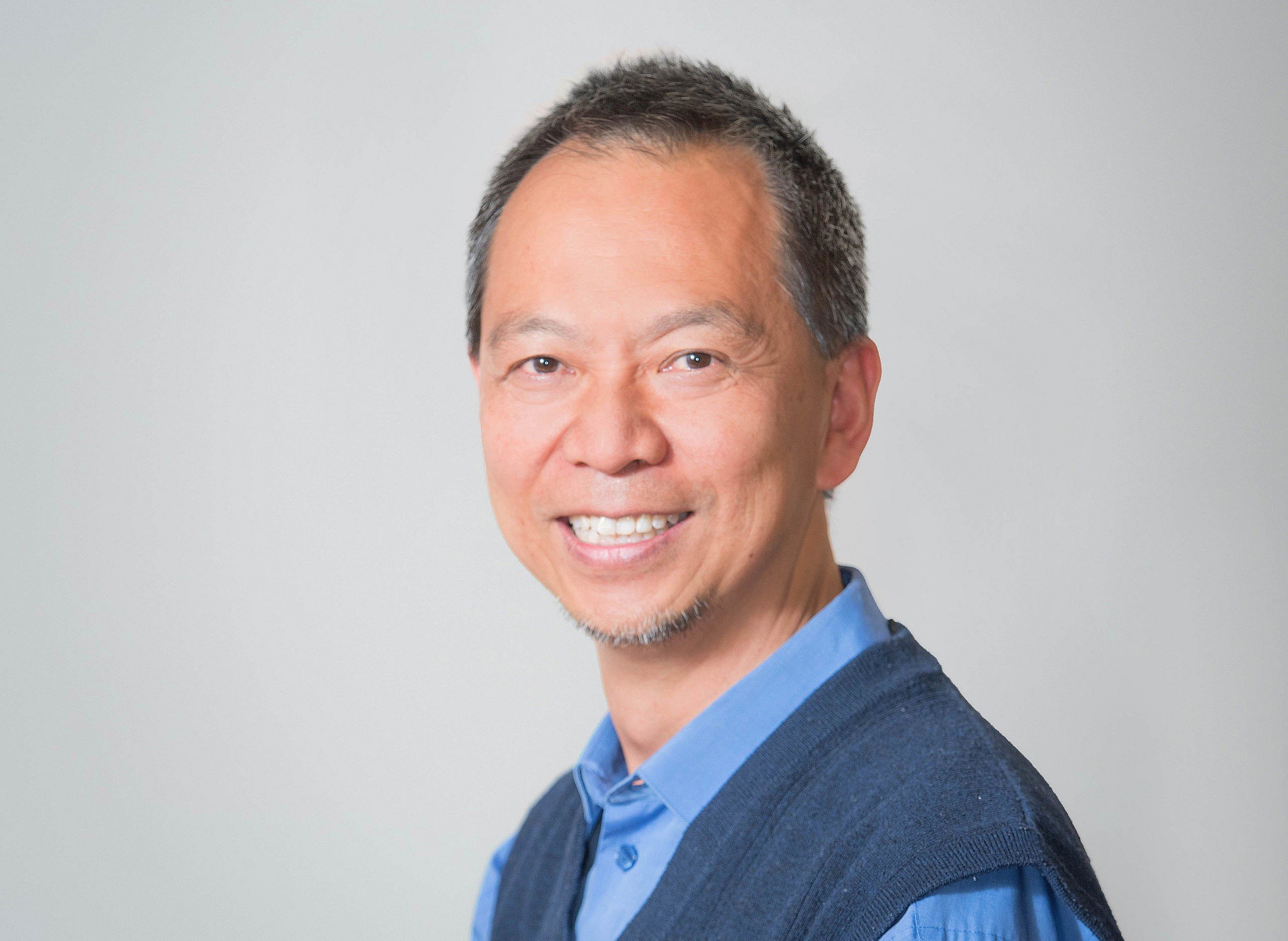
Michael Lee, University of British Columbia
Professor of Teaching in the Department of Occupational Science and Occupational Therapy, University of British Columbia
Professor Michael Lee makes a tremendous impact on teaching and learning at UBC, nationwide, and internationally. A Professor of Teaching from the University of British Columbia’s (UBC’s) Department of Occupational Science and Occupational Therapy, Michael’s teaching is founded on an unwavering commitment to his students’ mental health and well–being, enacting a pedagogy of care. In 2010, he initiated UBC’s student-led Mental Health Awareness Club, and, in 2020, he helped develop Canada’s National Standard for Psychological Health and Safety of Post-Secondary Students.
Michael strives to teach what he calls, “a heart to foster recovery.” His students speak of having felt deeply cared for and supported in his classes. A student describes Michael as a “very kind, intelligent teacher” who engages in his students’ learning and shares his love of Occupational Therapy. A colleague notes his “deep-seated initiative to contribute to best practices to promote well-being, effective teaching, and inter-professional education.”
He has been recognized by his students, colleagues, and alumni for improvements to the student experience and learning environment at UBC. The breadth and impact of his approach to teaching cannot be overstated.
The impact of Michael’s work is felt beyond his classroom and institution. Internationally, Michael has delivered yearly workshops in China and Asia, supporting a medical university in the re-design of the curriculum for their course in mental health and occupational therapy. He made a significant contribution to the first book in Chinese addressing mental health within occupational therapy.
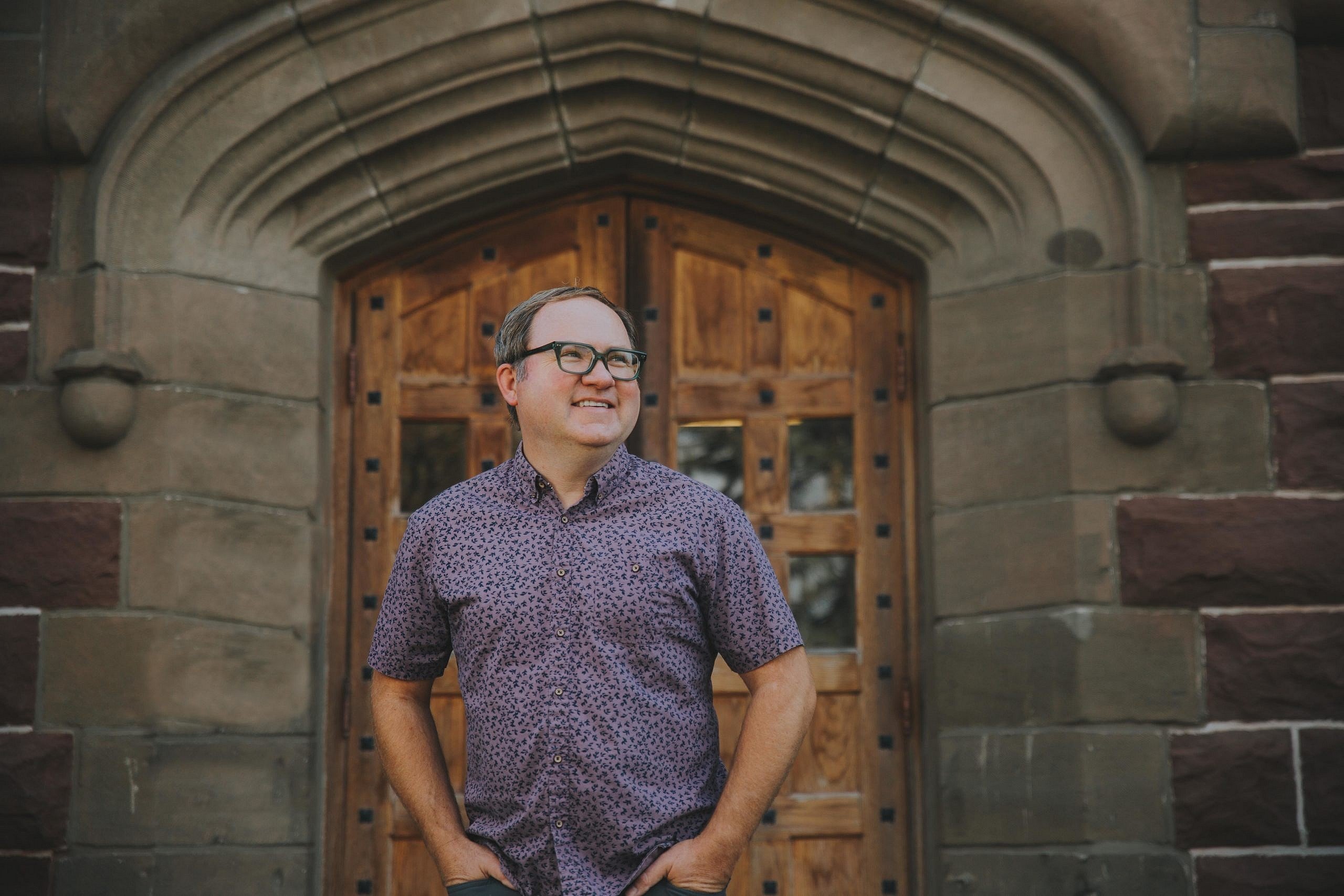
Toni Roberts, Mount Allison University
Educational Technology Consultant, Mount Allison University
Toni Roberts is a vital, innovative and committed member of the Mount Allison educational team, in roles that include Educational Technology Consultant, in-class instructor, and leadership of the Maple League Teaching and Learning Committee. Care is the foundation of his approach to teaching and educational leadership. Through the lens of equity, diversity, inclusion and universal design for learning, Toni expresses this care through critical listening, welcoming and valuing difference, innovative educational development activities and programs. “Care underlies all that I do,” he writes; “In teaching, in thinking about positive social change and leadership, how we take care of one another is paramount.”
He is fully engaged in and contributes to higher education professional development and the scholarship of teaching and learning. “Professor Roberts’ passion and enjoyment of teaching is clearly reflected in the positive attitude he brings to each class, “writes a former student. A colleague adds, “Under his gentle and inspiring leadership we have built a collaborative space – a rich and vibrant community – that takes at its core the values of care, community, and collaboration. He has harnessed technology to make the world more humane, open, and inclusive.”
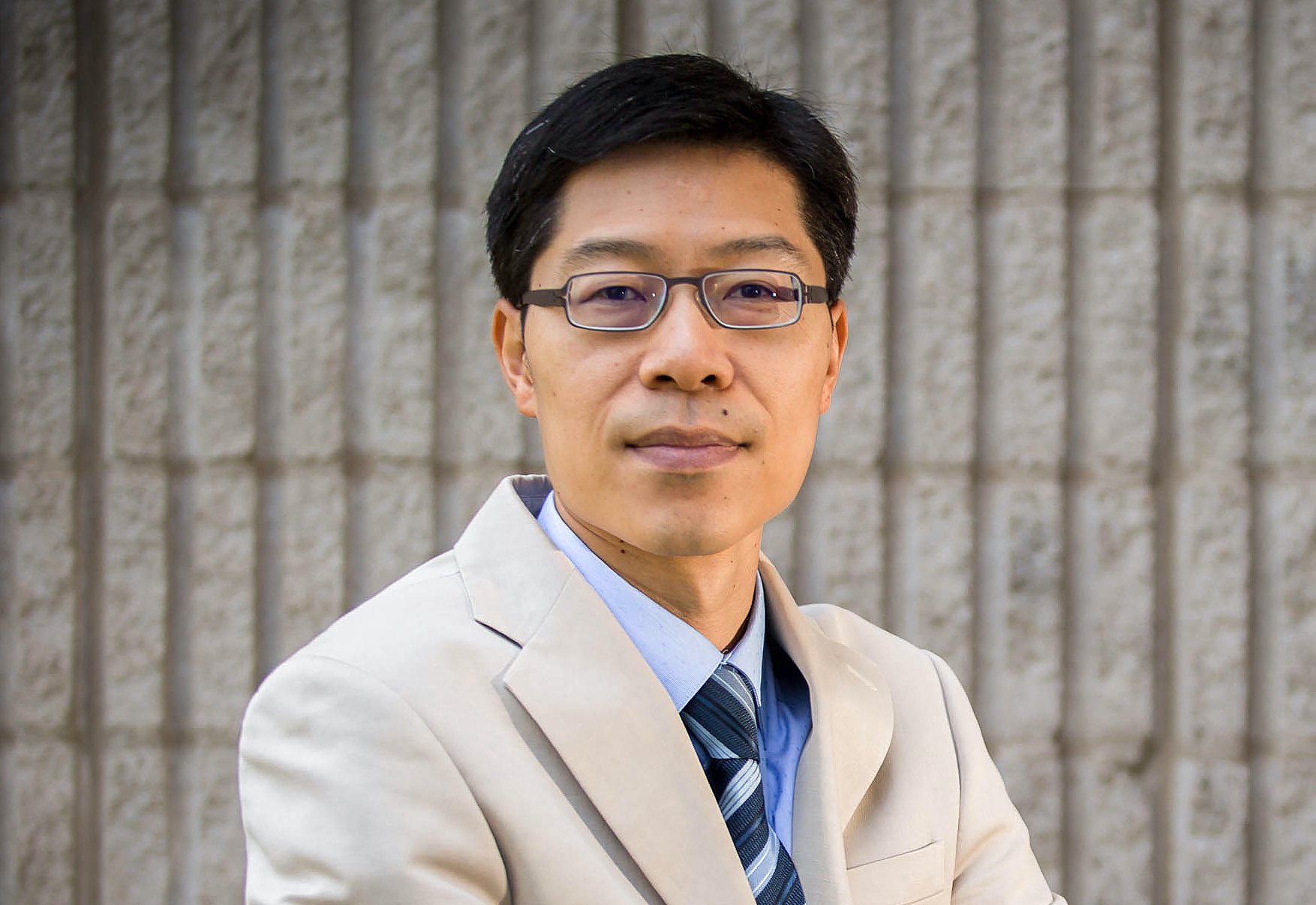
Kai-Yu Wang, Brock University
Chair of the Marketing, International Business, and Strategy department, Brock University
Dr. Kai-Yu Wang is recognized for teaching excellence, innovation, and leadership in education. He has received international accolades for the unique partnership model he created that connects students to community partners and integrates service-learning projects into his classes. These collaborations allow students to solve real world marketing problems by planning and delivering proposals and solutions. His students have completed projects with 110 local businesses and organizations over the past 11 years. The most prominent contributions to pedagogy are his development of a Search Engine Marketing and Social Media Marketing learning process. He actively presents the innovative program and shares his course materials at conferences all over North America. Advancing the innovative program, he has developed a Digital Marketing Certification Program which aims to train learners with digital marketing skills in order to meet the business needs for digital presence in the Niagara Region.
Dr. Wang’s enthusiasm, dedication and high standards to exceptional teaching and learning are regarded highly by students and serve as an inspiration to his faculty colleagues both at Brock University and beyond.